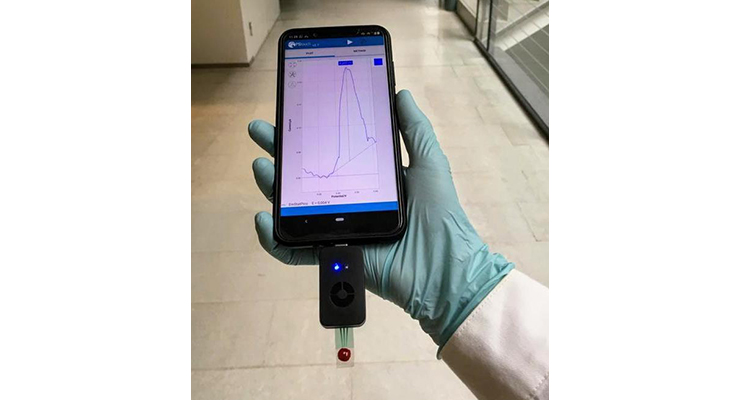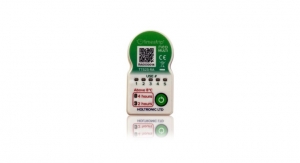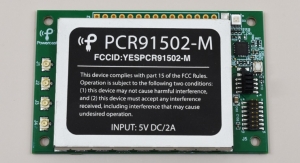The misuse of opioids is a major concern, as the number of deaths and addictions are rising. According to the US Centers for Disease Control (CDC), of the drug overdose deaths in 2018, “nearly 70% of the 67,367 deaths in 2018 involved an opioid.” Among the CDC’s recommendations is better monitoring of trends.
This could become a reality if the FEPOD project comes to fruition. As part of the Finland Tekes’ Challenge Finland competition, Canatu, Aalto University and the University of Helsinki have developed an electrochemical sensor that utilizes Canatu Carbon NanoBud (CNB) technology to measure bedside blood concentration measurement of analgesics.
Currently, opioid concentration is determined by clinicians’ observations, followed by blood testing. These tests can take hours or even days to process. Using as little as one drop of blood, urine or saliva, FEPOD’s electrochemical sensor will be able to measure drug concentrations.
Among its advantages, the new testing method is easy to use, is less invasive and can be done at the point of care, reducing wait time for results and cost.
Canatu’s Carbon NanoBuds are clean, have high conductivity and a large surface area, which enables a low detection limit. They are extremely versatile. The company reports that they are self-filtering, which helps prevent electrode contamination by large molecules like proteins.
“The new portable POC electrochemical sensor enables timely clinical decision making and better patient care. With fast test results, the physician can update the individual care plan and the medication in a timely manner,” Prof. Eija Kalso, Faculty of Medicine, University of Helsinki, said in announcing the progress.
Canatu Oy CTO Ilkka Varjos noted that Canatu has been working on the FEPOD project along with Aalto University and Helsinki University for nearly three years.
“Aalto University and Helsinki University bring electrochemistry and application know-how,” Varjos said. “We will use our expertise to tune carbon nanobuds and the sensor structure to meet the application requirements.
“The sensor detects opioids such as morphine, oxycodone and codeine as well as other painkillers like paracetamol,” Varjos added. “They have better sensitivity, lower detection limit, rapid detection at the point-of-care, lower cost-per-case, small size and portability.”
The sensor is being evaluated at Helsinki University Hospital. The trials at Helsinki University Hospital have just started, and clinical study results have not been disclosed in public yet.
Varjos added that Canatu anticipates the sensor being approved for commercial sales. “However, the timeline has not been published,” Varjos added.
“CNBs are amazingly versatile with virtually infinite application potentials. With medical diagnostics, we are embarking on an exciting journey with a meaningful purpose; to help cure the global opioid overdose crisis and save lives,” Varjos concluded.




























